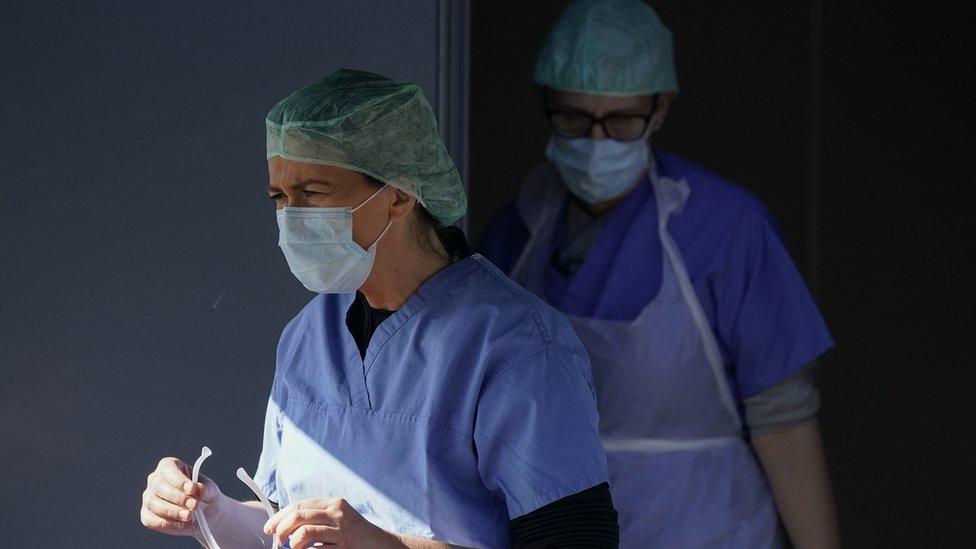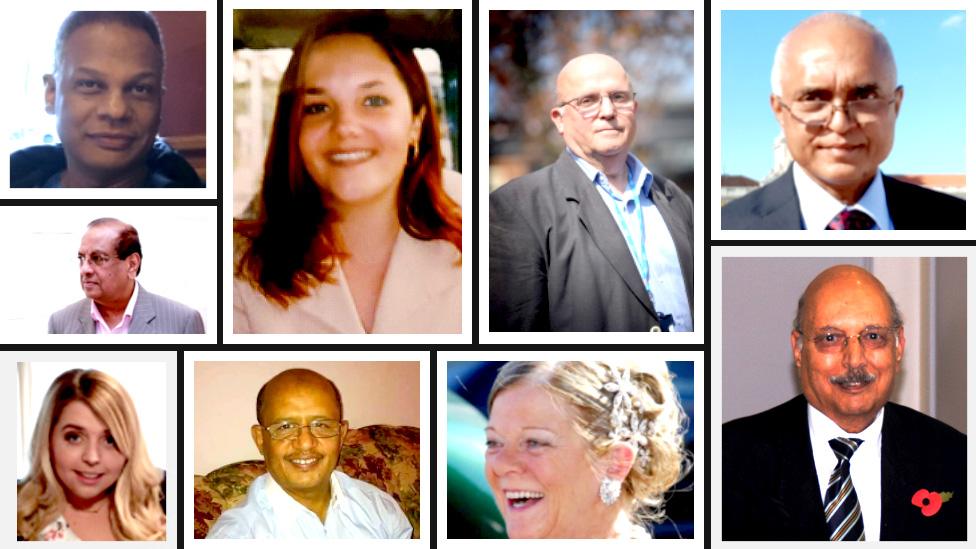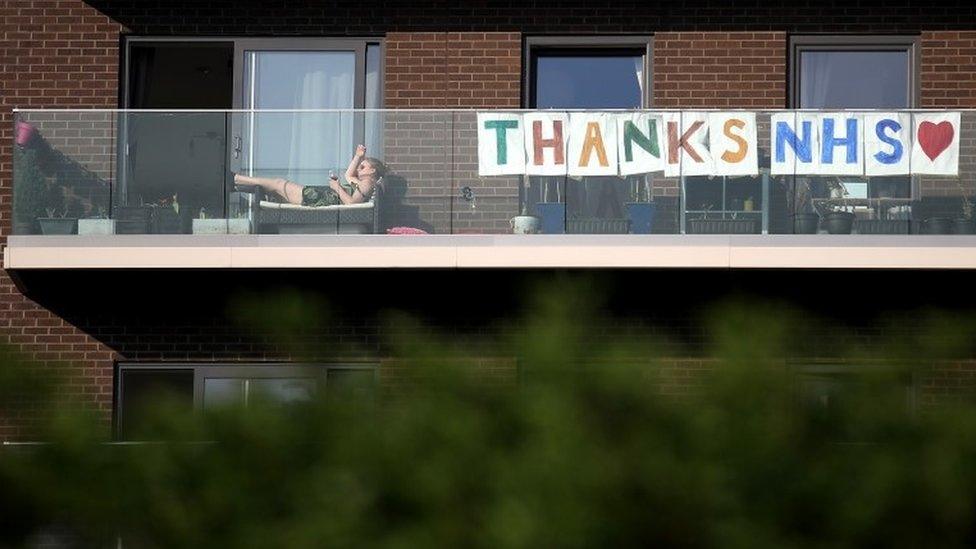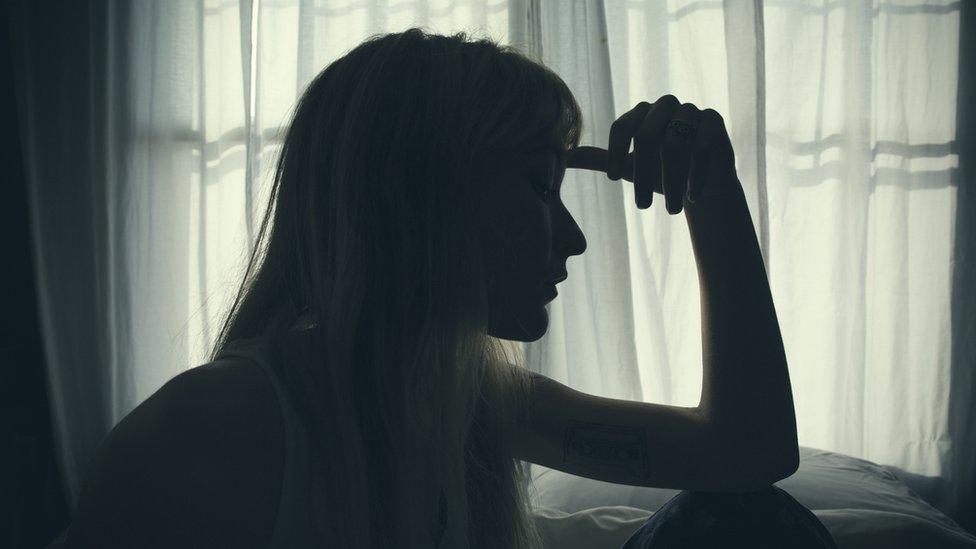Coronavirus: Front-line NHS staff 'at risk of PTSD'
- Published

NHS staff on the front line of the coronavirus pandemic could develop anxiety, burnout, or post-traumatic stress disorder, the BBC has been told.
Psychological first aid should be provided as the UK runs the risk of a "future mental health crisis", the British Psychological Society said.
Ministers say NHS staff can call a helpline if they are feeling stressed.
But MPs say this is not enough and that the government should provide extra support to those feeling overwhelmed.
The cross-party group says any support should be extended to all front-line staff such as care home staff, mortuary workers and cleaners.
In a letter, MPs call for management in front-line organisations to put in place preventative measures like regular breaks, encouraging people to look after themselves and to tell people that it is "OK to not be OK".
The MPs and British Psychological Society also say professional help from psychologists and therapists needs to be easily accessible - so trauma can be dealt with early.
Front-line staff in the coronavirus crisis are routinely exposed to things the general population would never encounter - loss of patients, illness of colleagues, high levels of stress and increased exposure to Covid-19.
Trauma can leave some with insomnia, feeling disorientated, with a sense of guilt or even physical symptoms like shaking, headache, loss of appetite and aches and pains.
Some people could see a deterioration of their mental health or develop anxiety or PTSD.

A SIMPLE GUIDE: How do I protect myself?
HOPE AND LOSS: Your coronavirus stories
LOOK-UP TOOL: Check cases in your area
VIDEO: The 20-second hand wash

"We are running the risk of a future mental health crisis and a generation of burnt-out health workers," said Kathryn Scott, director of policy at the British Psychological Society.
"If we act now with a plan focused on prevention and leadership we can minimise the impact of trauma on responders to Covid-19."
A Department of Health and Social Care spokesperson said: ''We share the concerns that this epidemic poses challenges to the mental health and wellbeing of all our health and care workers."
The spokesperson said NHS England had partnered with Headspace, UnMind and Big Health to offer "free-to-use mental health apps for both NHS and care staff".
A £5m grant was also available for mental health charities to fund additional services for people who are struggling, the spokesperson said.
Dr Andrew Molodynski, a consultant psychiatrist and mental health lead for the British Medical Association, said: "Health workers are used to seeing death, but we aren't used to seeing lots and lots of people die when we can't do anything about it.
"That will cause a lot of symptoms of anxiety, depression and trauma.
"I'm already seeing that in my hospital - staff are anxious and some are already off work because of the impact that has had on their mental health."
The all-party group of MPs has asked the government to encourage the NHS and care organisations to treat their staff with compassion, and signpost ways to get help.
The MPs also call for a focus on psychological first aid, developed for use in disasters like hurricanes or wildfires in the US.
It sees people at risk encouraged to seek help and support one another with stress before it becomes a serious permanent problem.
SNP MP Lisa Cameron, who wrote the letter to Health Secretary Matt Hancock, said protecting the mental health of staff was "essential" - just like providing adequate protective equipment.
Ms Cameron added: "If we fail to act now, front-line staff and communities will be living with the psychological consequences of coronavirus for decades to come."
Thousands of people in the UK have died after being diagnoses with coronavirus, including nurses, doctors, surgeons and other NHS staff.
- Published28 April 2020

- Published11 April 2020

- Published11 April 2020
